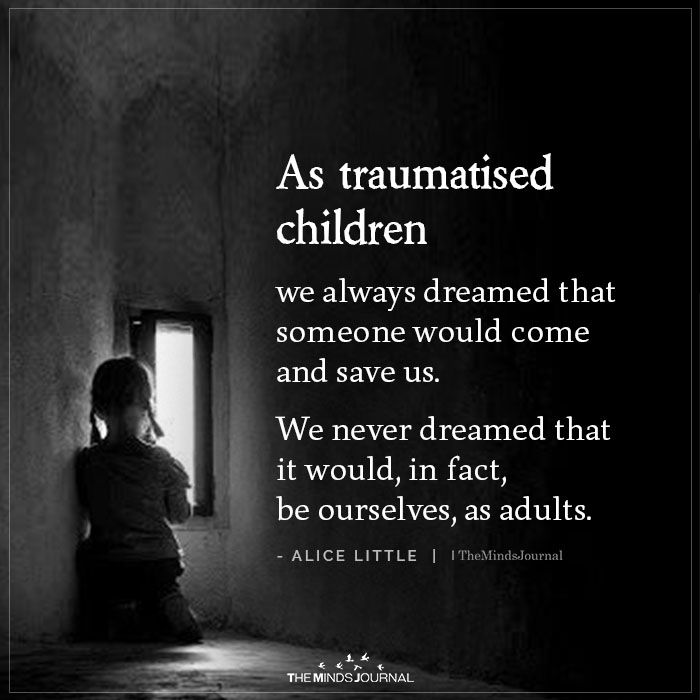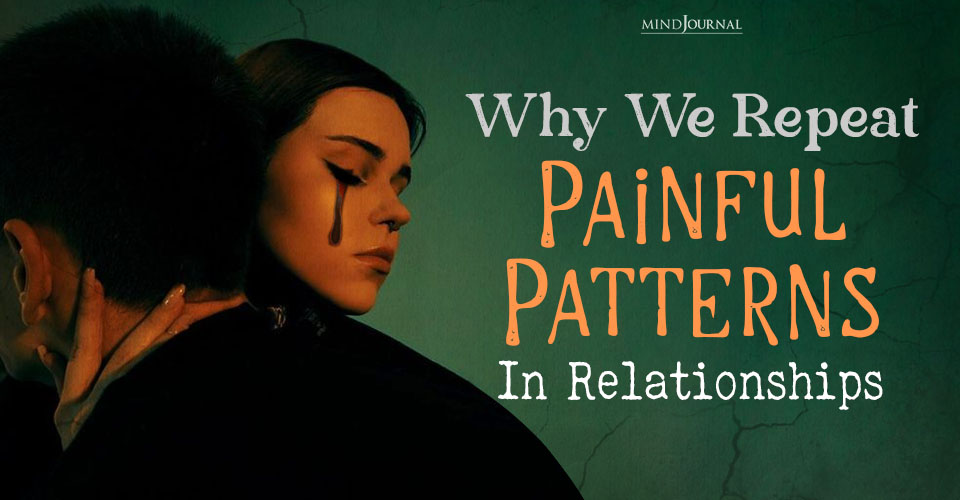Repetition compulsion is a common issue in relationships, leading many people to relive old hurts and conflicts. These recurring patterns and conflicts can feel frustration and bewildering. Explore how repetition compulsion works in the article below.
KEY POINTS
- The “repetition compulsion” is a basic concept in psychotherapy.
- Freud believed the repetition compulsion was a reflection of the death instinct—an unconscious drive toward self-destruction.
- The repetition compulsion is acted out through processes such as displacement and projection.
The “repetition compulsion” is a basic concept in psychotherapy. The compulsion to repeat is particularly interesting because what is repeated is not pleasurable. On the contrary, it is usually a painful and destructive pattern of feeling and behaving.
How different types of therapists interpret repetition
Different “brands” of psychotherapy explain the causes in a variety of ways. For example, behavioral therapists treat the repetitions as bad habits that can be changed by conditioning.
Cognitive therapists view the repetitions as irrational ways of thinking that can be changed by rational thinking.
Psychoanalytic therapists trace the repetitions to childhood experiences that get replayed in adulthood. For example, children who are abused often grow up to be abused or abusers as adults.
Related: 7 Signs You’ve Difficulty Accepting Love After Trauma
Freud believed the repetition compulsion was a reflection of the death instinct—an unconscious drive toward self-destruction. Most psychoanalysts have rejected the concept of the death instinct and believe these repetitive feeling states and behaviors were originally adaptive and necessary for a child’s psychic survival, but in adulthood they can be self-destructive.
Many contemporary psychoanalysts understand the repetition as an attempt at mastery—the hope that this time the mother or father or grandfather (or their stand-ins) will behave differently.
From this perspective, the woman who tries to seduce her male analyst by dressing seductively and making seductive remarks unconsciously wishes the male analyst (father) will not act out his sexual feelings toward her as her father did.

Displacement, projection, and transference
The repetition compulsion is acted out through processes such as displacement and projection. Displacement involves experiencing and treating one person as if he were another. Thus, the patient may experience the analyst as if she were his mother.
Projection involves experiencing another person as having feelings that you have. For example, the patient is feeling guilty and experiences the analyst as thinking she is bad.
In psychoanalysis, the feelings and experiences that the patient has toward the analyst are called “transference” and the analysis of the transference is at the heart of the psychoanalytic process.
Working through repetition and transference
The repetition compulsion and transference do not only occur in psychotherapy and psychoanalysis—they appear in our lives on an everyday basis. The only difference is that in psychoanalysis, the repetitions and transference are identified through insight and “worked through.”
By “working through,” I am referring to the process of being able to distinguish the analyst from the person with whom you developed this pattern in childhood and internalizing a new way of relating and feeling.
For example, I have a patient who experiences me as uninterested in her the way she experienced her mother. It makes her alternatively desperate to engage me and angry at me for not being engaged.
She experiences this with her husband, friends, and colleagues as well as with me. But it is with me that she has come to see that this is a lens through which she experiences the world.
In our relationships with our lovers, friends, husbands, wives, children, friends, and co-workers, the repetitions (based on the lens through which we color the world) do not generally get identified or worked through.
In my work with patients, I describe it as similar to Bugs Bunny’s carrot machine. Whatever he put into it, it came out in the shape of a carrot.
The “working through” process takes a long time. We do not simply stop doing or feeling the way we experience as “natural” and what we have been doing our whole life. In addition, stopping a repetitive pattern usually involves giving up something.
Related: Repetition Compulsion: Why Do We Repeat The Past?
This is the basis for what psychoanalysts call “resistance.” If people have so much trouble stopping a behavior pattern that causes them pain, the pattern must have some function.
The most concrete and conscious example is addictions. The ecstasy of a heroin high or of winning a horse race is so intense that the person cannot give it up, despite the fact that it destroys their family, career, or friendships.
Check out an excerpt from Roberta Satow’s book, Our Time Is Up here:
“The weather in our house was stormy with the promise of thunder and lightning. I walked on the balls of my feet, as if to prepare for the thunderclaps that would slam me across the room. Before I started elementary school, I was alone with my mother when my father left for work at the Hunter Coal Company on Flatbush Avenue.
As usual on Wednesdays, she put on her shmata, a sleeveless cotton housedress that tied across the front. The pink and green flowers on the dress accentuated the scowl on her face. She hated cleaning. But it was her life sentence. She filled a brown plastic bucket with hot water and added Ivory soap flakes and Jane Parker ammonia.
Putting on her yellow plastic gloves to protect her nail polish, she dropped the wooden brush with stiff bristles into the bucket. Then she turned to me and said, “Go out on the porch so I can wash the floor.”
She ushered me down the narrow hall with her gloved hand on the small of my back, and shut the door behind me. Once exiled, peering through the glass panes in the front door, I watched her on her hands and knees scrubbing the linoleum floor.
Her breasts peeked out of her shmata with each forward movement of the brush, and an occasional smile crossed her face as she listened to Rayburn and Finch on the radio.
Outside, the trees tossed in the wind and clouds scudded across the sky. The porch shook from the elevated train that stopped half a block from our house on its way to Coney Island. At the foot of the concrete steps, there were three large dogs—a dirty German shepherd, a dark gray mutt with a wrinkled face and a black snout, and a long-haired white mongrel.
They lived in an empty lot on McDonald Avenue around the corner from our house, and roamed the streets looking for food early each morning. Saliva dripped from the German shepherd’s mouth as he bared his teeth and snarled.
I ran back to the front door. “Ma, Ma the dogs are out here! Let me in! Please, Ma!” I pleaded.
“Be quiet,” she yelled, red-faced with sweat dripping, “and wait on the porch!” I whimpered, “Mommy please, I’m scared of the dogs. . . . ”
The white mongrel growled. I pulled one of the rusted metal chairs as far from the stoop and the dogs as I could get it and crouched behind it. I watched the dogs at the bottom of the stairs jumping up on each other and barking loudly.
They could run up the steps at any moment and I would be cornered. Then I imagined there was an invisible fence at the steps, but it only worked if I kept my eyes firmly fixed on the dogs. I stared at the dogs and chanted, “A hundred bottles of beer on the wall, a hundred bottles of beer, take one down and pass it around, ninety-nine bottles of beer. . . .”
When my mother finished, she poured the brown sudsy water in the kitchen sink, rinsed the bucket and brush, carefully turned the brush upside down to air dry, untied her shmata, andturned on the faucet for her bath. I heard the water running.
The dogs moved on down the block and the terror passed. I stood up and sat in the chair, breathing heavily and staring into space. She did not come out to get me when she was finished. She just took her bath and went to lie down on her bed.
I could see her pull down the quilted bedspread as I stood on my tiptoes peering through her bedroom window that faced the porch. It was safe to go back in the house. The floor must already be dry, but I had to be quiet. I was crossing a mine field and had to hold my breath, tiptoe slowly, and not jostle anything.
Opening and closing the door could cause an explosion. I smelled the light citrus of Jean Nate toilet water as I passed the steamy bathroom on the way to my room. I closed the door carefully behind me and exhaled.”
Written By Roberta Satow
Originally Appeared On Psychology Today











Leave a Reply